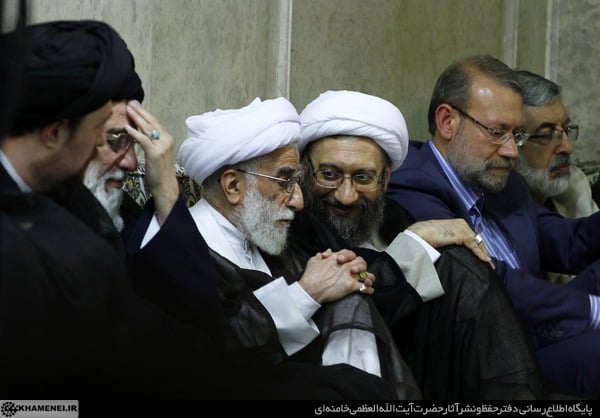
Iran’s presidential election will be held on June 14. Under Iran’s election law, observation of the voting process is a crime unless this monitoring is pre-approved. Generally, presidential candidates are only allowed to have one representative at each polling station to monitor the process. In 2009, it was claimed by Mir-Hossein Mousavi, the presidential hopeful, that ballot-stuffing was committed in the absence of his representatives at the opening of polling stations. Mousavi also claimed that several of his representatives were prevented from being present at polling stations around the country. As a result of this and other claims of fraud, thousands of Iranians took to the streets to protest against election results.
In a pre-emptive move to address concerns of fraud during the present election cycle (and potentially to prevent Mahmud Ahmadinejad from using his office to manipulate the vote), the Islamic Republic has established an election management body (EMB). Introduced by the parliament and partially approved by the Guardian Council this past February, the Central Executive Election Board (CEEB) will comprise eleven members including the interior minister, the state prosecutor and the intelligence minister among other political, religious and social figures. The law requires that the interior ministry administer elections under the direct supervision of the CEEB. Additionally, the bill emphasizes the role of the judiciary branch in monitoring the electoral process and preventing electoral-rated crimes. Under this law, representatives from the head of the judiciary and the state prosecutor will exercise oversight over elections in townships.
The independence of the CEEB in overseeing elections in Iran is debatable. The law reduced the influence of the interior ministry in the electoral process, but increased the role of the Guardian Council and the judiciary branch. The CEEB will operate under the auspices of the Guardian Council. Six members of the Guardian Council and the head of the Iranian judiciary are directly appointed by Iran’s Supreme Leader, Ali Khamenei.
Since the CEEB will operate under the authority of the Guardian Council, it will clearly do little to quell concerns of fraud in the upcoming election. In 2009, the Guardian Council concluded that following a recount of what was described as a randomly selected 10 percent of approximately 40 million votes, there were only “slight irregularities” in the vote. The judiciary branch, supporting this decision, arrested and tried hundreds of Mousavi supporters. It remains to be seen if the Islamic Republic will be able to mitigate concerns that could overshadow one of its most crucial elections since the Islamic revolution in 1979.